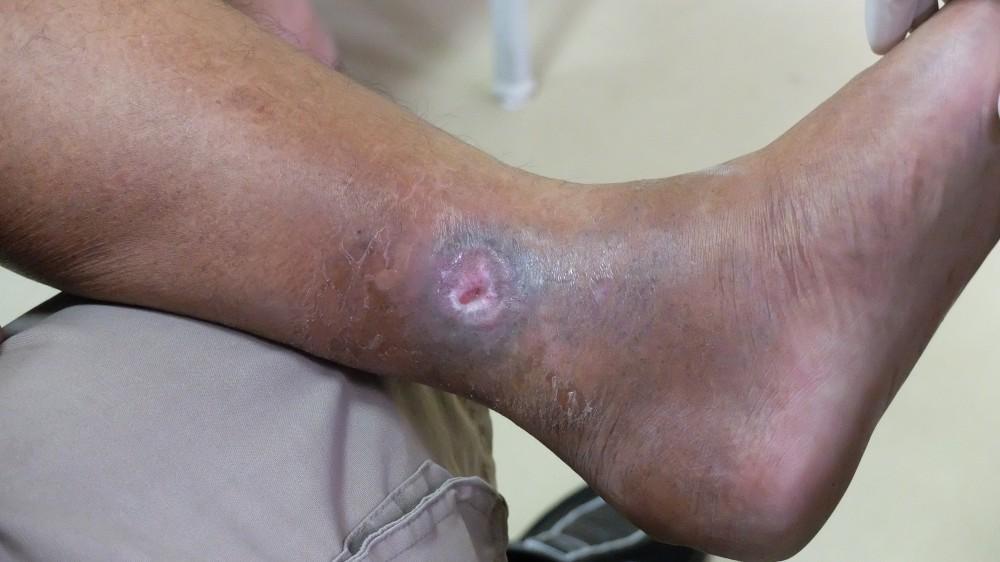
5 Reasons to Consider Bunion Surgery

Bunions on your feet cause deformity at the base of your big toe. Without treatment, severe bunions can make wearing shoes or even walking around uncomfortable or outright painful, limiting your mobility and reducing your quality of life.
At The Foot Care Group, board-certified podiatrist Dr. Steve Sharlin uses the most conservative form of treatment possible to address and resolve your bunions. In severe cases, bunion surgery could be the best way for your feet to completely recover.
Dr. Sharlin provides bunion surgery from offices in the North Suburbs of Libertyville, Illinois, and the Western Suburbs of Hinsdale, Illinois, as well as in the Streeterville community of Chicago. Here are just some of the reasons why bunion surgery could be the best next step for your feet.
1. Restore the shape of your foot
When you have a bunion, pressure on the bones of your feet causes the formation of a bony growth at the bottom of your big toe. Large bunions can completely distort the shape of your foot, making it hard to find comfortable, good-fitting footwear, and creating pain and discomfort when you stand and walk.
Bunion surgery completely restores the shape of your foot, removing the distortion caused by your bunion.
2. Prevent calluses and corns
The foot deformation caused by bunions can put pressure on atypical areas of your feet, leading to the growth of calluses and corns in locations like your toes or the soles of your feet.
If your bunions don’t respond to conservative treatment options, surgery may be the best way for you to get rid of the bony growth that’s changing your foot shape and causing additional podiatry problems.
3. Keep moving and keep active
Left untreated, serious bunions may result in shifts to your gait or posture, or a decrease in activity overall. But, keeping active is an important part of your whole-body health, especially as you get older.
After full recovery from your bunion surgery procedure, you’ll be able to move and stay active with increased comfort and flexibility. Long walks, bicycling, and even dancing can play a bigger part in your life again, keeping you healthy and fit for years to come.
4. Cope with chronic foot pain
Severe bunions can result in chronic foot pain that never leaves you alone, seriously damaging your quality of life. If you’re in chronic or severe pain from a bunion, get in touch with Dr. Sharlin right away to learn more about your treatment options.
5. Safe and effective surgical treatment
Conservative treatment options are most likely to work for bunions when you seek treatment right away, and still only have mild bunion growth. If you have severe bunions causing discomfort and pain, Dr. Sharlin may recommend surgical treatment to resolve the issue.
Bunion surgery is a safe and effective way to remove bony growths from your affected foot. Once Dr. Sharlin removes the portion of your foot bone that’s grown enlarged, he repositions the tendons and bones of your feet for correct healing. Block anesthesia keeps you conscious but comfortable during the procedure.
After 6-8 weeks for recovery, you may be back on your feet. More intensive procedures require 4-6 months before you can get back to full activity. Dr. Sharlin can recommend the best techniques to speed your healing and have your feet back to normal as soon as possible.
To learn more about bunion treatment and bunion surgery, get in touch with Dr. Sharlin and the team at The Foot Care Group today. Schedule your initial consultation appointment over the phone, or book online.
You Might Also Enjoy...


Can Hammertoes Be Corrected with Orthotics?

Can Cryotherapy Get Rid of My Plantar Warts?

I'm Embarrassed About My Toenail Fungus: What Can Help?

5 Bothersome Complications of Untreated Hammertoe

